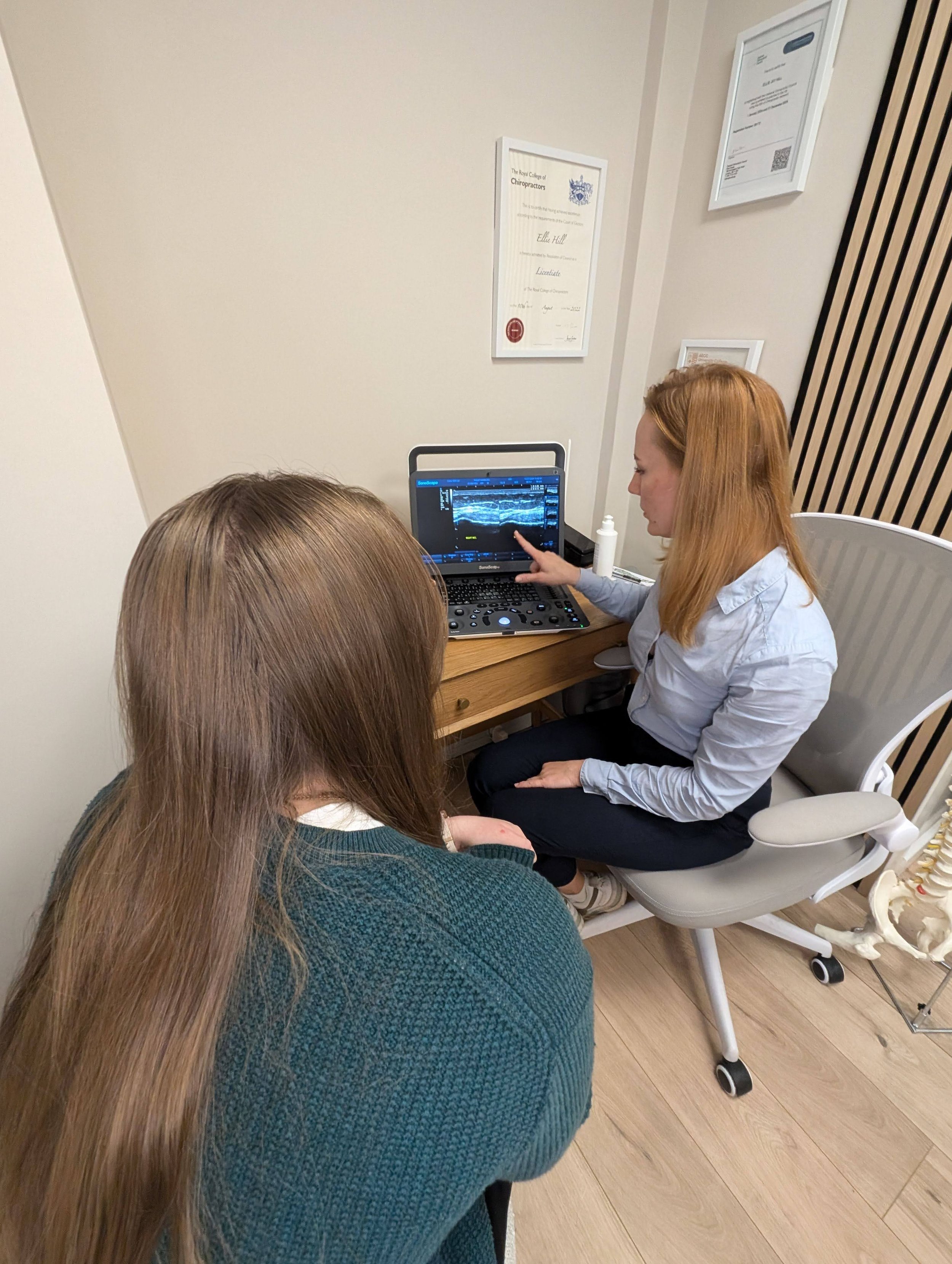£125 per scan.
Consultations are free.
£125 per scan. Consultations are free.
Diagnostic Ultrasound Scans
For Musculoskeletal Injuries
What kinds of conditions can ultrasound scan?
Ultrasound can detect a variety of conditions, including muscle tears, tendonitis, bursitis, and joint effusions. It's often used to assess sports injuries, helping to identify the precise nature of the damage. Its non-invasive nature makes it ideal for seeing what’s happening beneath the skin without the need for surgical intervention.
How do ultrasound scans work?
Diagnostic ultrasound is a medical imaging technique that uses high-frequency sound waves to create images of the inside of the body. It works by sending sound waves through the body, which bounce off tissues and organs, producing echoes. These echoes are then translated into images on a monitor. This method is particularly effective at visualising soft tissues, making it an excellent tool for detecting injuries in muscles, tendons, and ligaments. Unlike x-rays, which primarily show bones, ultrasound allows healthcare professionals to see real-time movement and better assess the condition of soft tissue injuries.
Why not MRI or X-Ray?
One significant advantage of ultrasound over MRI or x-ray is its cost-effectiveness and accessibility. Ultrasound machines are typically smaller and more portable, allowing for faster diagnosis in various settings, including clinics and offices. Moreover, ultrasound does not use ionising radiation, making it a safer option, especially for patients who may require multiple scans. It also provides real-time imaging, allowing clinicians to observe movement within the body, which aids in making quicker and more accurate assessments of injuries.
Non-invasive
Ultrasound imaging is non-invasive, meaning it does not involve radiation like X-rays do
Same Day Results
Ultrasound provides high-resolution images while the body is able to move, allowing for precise and accurate diagnosis of musculoskeletal conditions.
High Accuracy
It allows for real-time visualization of the affected area, which means that results will typically be discussed with you at the time of scanning.
FAQs
-
Scans can be performed with real-time feedback within 30 minutes. The lead time for an appointment is typically less than 7 days.
-
The results of your scan will typically be discussed on the day, as the area is being examined and scanned and a medical report will be provided within 2 business days.
-
A medical report of your scan results is provided to you within 2 business days of your scan, and can be provided to your doctor for further management.
-
Scan appointments are 45 minutes at a rate of £120. An initial consultation to determine whether a scan will be beneficial is free of charge.



